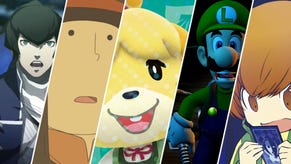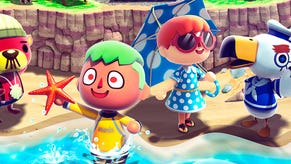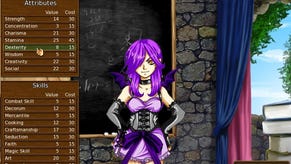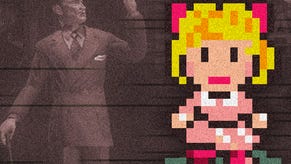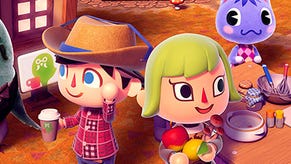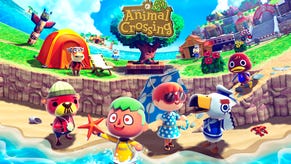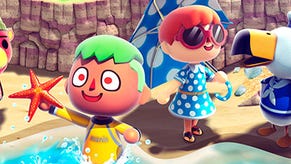Local Color: An Animal Crossing New Leaf Interview
There's far more to localizing Animal Crossing for America than simply changing Japanese words into English.
This article first appeared on USgamer, a partner publication of VG247. Some content, such as this article, has been migrated to VG247 for posterity after USgamer's closure - but it has not been edited or further vetted by the VG247 team.
Now that Animal Crossing: New Leaf is in everyone's hands, the rest of the world can experience the same curious mix of addiction and alarm that Jaz and I expressed in our review. New Leaf just might be the most obsessive-compulsive chapter of the franchise to date, and a big part of the game's appeal comes from the reams and reams of dialogue you share with your animal neighbors. Sometimes hilarious, sometimes simply weird, the conversations of Animal Crossing present a masterstroke of localization. We talked to Nintendo localization producer Reiko Ninomiya about the process of converting New Leaf to English from the original Japanese -- or in some cases, making things up whole cloth.
USgamer: You mentioned in your video roundtable that you began work on ACNL's localization in 2010. At that point, what did you know about the game beyond "It's a new Animal Crossing"?
Reiko Ninomiya: The development team had a strong desire to make the definitive Animal Crossing--to make it possible for players to do those things that they always wanted to do but couldn’t, like more complete customization and having a greater influence on the town and how it changes as the player interacts with the game. As fans of the series ourselves, they turned to the localization teams at NOA and NOE for some of these ideas as well as for region-specific events and items that would make the game feel even more authentic and personal.
USG: Given the heavy cultural adaptation required for an Animal Crossing game, is that early head-start fairly typical for the series?
RN: Yes. The development team was aware from the beginning that for the Animal Crossing experience to feel authentic, not only did the text have to be localized, but so did the items, events, and the environment they created. This required early involvement by all territories. Although these conversations happened in spurts in the beginning, as suggestions were made and considered, tested, and finally implemented, they became more and more frequent. By the time we moved into the polishing and text translation phases, we were talking daily--often several times per day.
USG: How closely do you work with the Japanese team during the localization process? Who decides which elements stay in the U.S. game and which get reworked?
RN: We work very closely with the development teams. Because we work together so early in the process when creating games like Animal Crossing, this minimizes the number of surprises when actual work gets started on playable versions of a game.
There have been a few instances where we've seen something and needed to have it altered for our version--those decisions are made in the Treehouse. One way in which we have adapted elements for our various territories is, for example, when an item that has meaning in Japan, but not for someone in the Americas, has been created. That item might be made an exclusive item for Japan but an American player could still get it when they visited the town of their Japanese friend on the day of the event through which it is distributed. This also allows us to insert text explaining the item and its relevance. Having exclusive items also makes the different versions feel unique.
USG: How much liberty are you given with villager conversations? Do the Japanese conversations carry over fairly cleanly, or do they have to be rewritten for the most part?
RN: The conversations with the townspeople are so key to the experience. Sure, there are special characters that perform certain functions for you in the game, but I feel like your neighbors are your friends – the ones you hang out with because you want to. The ones you help because they ask you to. Without them there would be no town, and without a town, there would be no mayor.
The development team is also aware of this and gave us a lot of freedom to mold these characters into meaningful and familiar characters for our audience. It helps that the source Japanese text we receive is always so strong--they have great writers there, and we're lucky to have their text to work off. That said, often a straight translation won’t sound natural to our users, and that’s when our writers really shine.
USG: The cultural specificity of the series seems to go back in forth from entry to entry. Holidays, for example, seem to waver between "made up" and "real-world." Real talk: Is this inconsistency borne of uncertainty, or just spicy variety?
RN: The initial shift you noticed was because of the cross-region compatibility of the Nintendo DS version. The development team opted to move to Animal Crossing-specific holidays so that people around the world could celebrate holidays together. The shift back to celebrating real-world and made-up holidays was made, as you said--to spice it up.
USG: I was surprised to see some of the anatomically correct statuary in the game! Meanwhile, I couldn't make my villagers speak harmless phrases in other languages because "you can't say that word." Yet you can have a town called, for example, Buttocks. Where do you draw the line on what's acceptable and what's not? It seems pretty hit-or-miss at times.
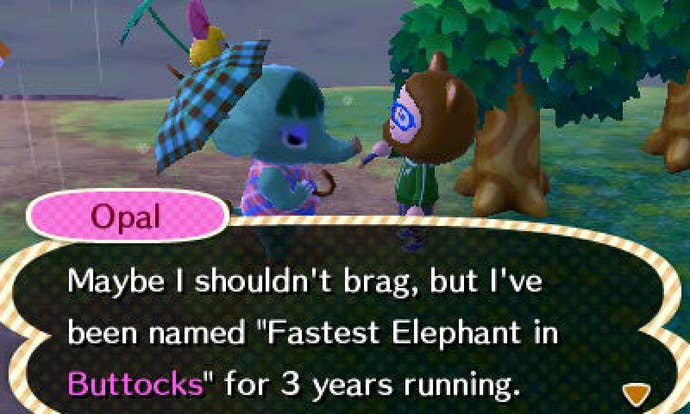
RN: The art pieces you're talking about are ones that are well known--we didn’t feel like we needed to exclude them because they were anatomically correct. They’re classical art pieces.
As for the profanity filter, there is no way that we can prohibit all the words that could be considered profane, but we do our best to protect our users using the tools we have available.
USG: There seems to be a lot of "dad humor" in Animal Crossing -- you know, groanworthy puns -- not that I'm complaining (that's pretty much why my Twitter account exists).Where do these terrible jokes come from, and how often do you come up with puns so terrible that they're stricken from the game as a matter of public safety?
RN: While some of them are written in the middle of the day, some of our best jokes come in the wee hours of the night. The more delirious the writer, the goofier the puns they can produce – and some of them are actually pretty good! I tend to believe the “terrible pun” is an oxymoron. The groanier, the better!
USG: How has the Animal Crossing localization process changed from the GameCube to the 3DS?
RN: The thing that’s changed the most is having access to better tools. The process of working closely with the development team and coordinating efforts internally were consistent. But significant improvements in our localization tools have helped us immensely. The amount of text has grown and we are now also translating into French and Spanish. If these improved tools didn’t exist, we’d probably still be working on the game!
USG: How often do ideas the U.S. localization team comes up with make their way back into the Japanese games?
RN: It depends on the game. There are conversations happening all the time around the office -- ideas and plans being shared. I am very happy with the way Animal Crossing: New Leaf turned out because it really felt like a collaboration between NOA, NOE and NCL. The development team did an amazing job in creating the role of the mayor and pacing the way the town opens up as you interact with the environment and characters. And the team here did a great job making the residents feel familiar and fantastic at the same time. I can’t wait for people to play it. It’s really something special.


